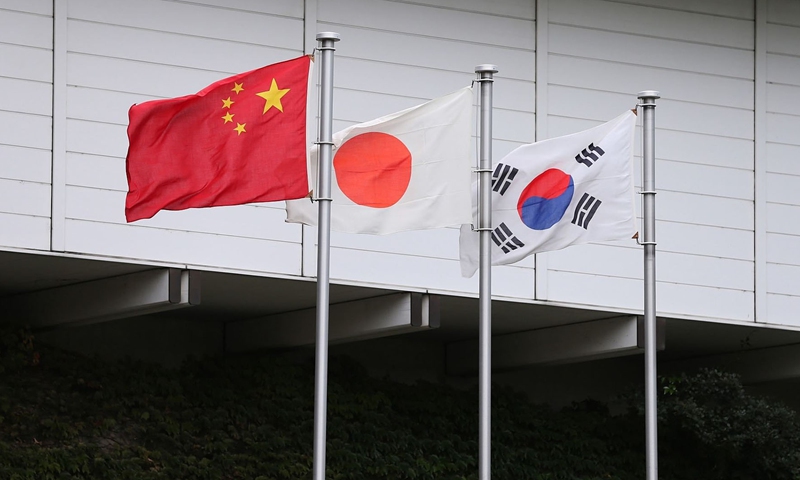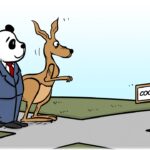Trilateral talks dampened by Camp David summit, require sincerity: expert
South Korean media reported that President Yoon Suk-yeol will make efforts to get South Korea, Japan and China cooperating with one another once again during his summit meetings with the Association of Southeast Asian Nations (ASEAN) in order to ease tensions in the region. Experts said on Wednesday that China-Japan-South Korea trilateral talks, dampened by the recent Camp David Summit between the US, Japan and South Korea and Japan’s dumping of nuclear-contaminated water into the ocean, require sincerity and actions, not unprincipled pursuit of cooperation.
In an interview with Indonesian news outlet Kompas published on Tuesday, Yoon said “Cooperation between South Korea, Japan and China should get back on track.” “When cooperation between the three Northeast Asian countries is reinvigorated, the cooperative ASEAN Plus Three scheme will gain greater momentum, and this will strengthen ASEAN centrality,” he noted.
The 43rd Association of Southeast Asian Nations (ASEAN) Summit with related summits officially kicked off on Tuesday in Jakarta, Indonesia.
Under the theme of “ASEAN Matters: Epicentrum of Growth,” the focus will be placed on establishing the region as an epicenter of economic growth, the Xinhua News Agency reported on Tuesday.
Previously, Wang Yi, a member of the Political Bureau of the Communist Party of China Central Committee and China’s Foreign Minister, and South Korean Foreign Minister Park Jin agreed on the need for three-way dialogue with Japan during a roughly 80-minute telephone call on August 31.
China-Japan-South Korean cooperation is a mutually beneficial mechanism that has brought great benefits to all three countries since its inception and it is of great significance to steer Asian economy, experts said. As the current chair of the stalled trilateral summit, South Korea has the responsibility to advance the cooperation, Lü Chao, an expert on Korean Peninsula issues at the Liaoning Academy of Social Sciences, told the Global Times on Wednesday.
The current “honeymoon” between Japan and South Korea was forced by the US, and the two have many deep-rooted contradictions, Lü pointed out.
Analysts believe that cooperating with the US to contain China is not in South Korea’s national interest. The resumption of the trilateral mechanism with China could reduce the risks posed by South Korea’s efforts to strengthen ties with the US and Japan, and also help boost public support for the Yoon administration, which has been criticized for being too pro-US.
However, experts said that the recent Camp David Summit between the US, Japan and South Korea could become the biggest obstacle to the trilateral China-Japan-South Korea cooperation mechanism, and that Tokyo and Seoul need to show sincerity. In addition, Japan’s dumping of nuclear-contaminated water into the sea has seriously affected cooperation between the three countries.
Trilateral talks require communication on these issues, not the unprincipled pursuit of cooperation, Lü stressed.
Although the resumption of a trilateral cooperation mechanism will not immediately change the situation between the three countries, it will at least send a signal that the US’ intention to pit Northeast Asian countries against each other will not succeed, Da Zhigang, director of the Institute of Northeast Asian Studies at the Heilongjiang Provincial Academy of Social Sciences, told the Global Times.
Although the three Asian countries have historical grievances as well as practical differences, they can manage these differences through other mechanisms and amplify favorable factors, Da pointed out.
The deepening economic and trade cooperation among the three countries is not only conducive to the stability of Northeast Asia and the prosperity of Asia, but also plays a huge role in promoting the global economy and trade, Da said.
More importantly, the resumption of the trilateral cooperation mechanism will also promote exchanges among young people in tourism, culture, science and technology, sports and other fields, to improve the landscape for cultural exchanges as well as the goodwill of the people of the three countries, Da noted.
(Global Times)




